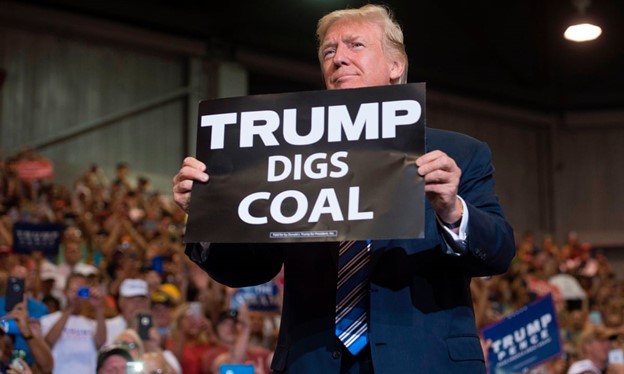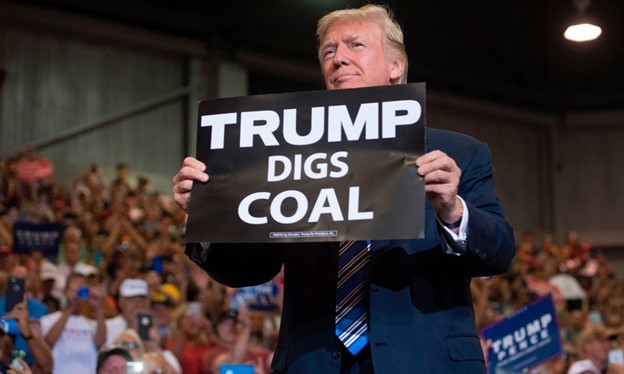
The recent approval of the Bull Mountains mine expansion in Montana is a strategic move by the Trump administration, aiming to boost domestic coal production and support its international allies.
In a move that combines domestic coal industry revival and international strategy, the Trump administration has approved the expansion of the Bull Mountains mine in Montana. This decision will enable the extraction of nearly 60 million tons of coal, intended for export to Japan and South Korea, two key US allies. The Bull Mountains mine, located in Musselshell and Yellowstone counties, employs over 250 workers.
Environmental groups have attempted to block the expansion due to concerns over water usage and greenhouse gas emissions. Anne Hedges, executive director of the Montana Environmental Information Center, stated, “It’s absurd that we’re sacrificing our climate, water resources, wildlife, and local ranching to ship coal to other countries.”
The approval, announced by the Department of the Interior on June 6th, falls under President Trump’s national energy emergency directive. This bold step places coal back at the center of US energy policy and as a tool to support foreign policy strategies.
The expansion, led by Signal Peak Energy, is expected to extend the mine’s life by up to 9 years and contribute over $1 billion to the local and state economy. Secretary of the Interior, Doug Burgum, emphasized, “This is a prime example of energy leadership.”
Burgum also asserted that the move not only creates jobs for Americans but also ensures energy security in the Indo-Pacific region. The timing of the approval is strategic, as Japan faces declining crude oil imports and South Korea pushes to diversify its energy sources.
During Trump’s second term, the coal industry has made a remarkable transformation, shifting from a politically neglected sector to a vital geopolitical asset. Executive orders have been issued to prevent coal plant closures, encourage new construction, and revive idle facilities.
While critics focus on the environmental impacts of coal, the administration prioritizes grid reliability and foreign policy reinforcement. Japan and South Korea, with over 80% reliance on energy imports, are crucial fronts in the global energy influence contest.
The expansion of the Bull Mountains mine also serves as a warning signal to China, which has long surpassed Western nations in production capacity through its extensive coal exploitation.
By positioning US coal exports as an economic and diplomatic lever, the Trump administration demonstrates its determination to contest China’s energy control in the Indo-Pacific region.
Coal, once considered an outdated energy source, may now be America’s most notable resurrection story to date.
Unlocking Emergency Rice Reserves: Long Lines and Empty Shelves as Japanese Citizens Brave the Rain to Secure Staple Food
The shelves of stores and supermarkets in Japan are now adorned with government-reserved rice, released to meet the surging demands of the populace.
The Komorebi & The Miyabi: An Investment Opportunity That’s Impressing the Investor Sphere
On the morning of May 31, 2025, the seaside city of Haiphong witnessed a vibrant gathering at the Pullman Hotel. The coastal breeze carried an air of excitement as hundreds of guests converged to partake in the official launch event of two distinct Japanese-inspired districts within the grand Vinhomes Royal Island resort metropolis – The Komorebi and The Miyabi.
Japanese Businesses Should Invest in Vietnam’s Semiconductor Industry Now
With the ambition to become the semiconductor hub of the region and a crucial link in the global semiconductor supply chain, Vietnam has been attracting a significant number of foreign investors. Given the strong political and economic ties between our countries, Deputy Prime Minister Nguyen Chi Dung encourages Japanese businesses, particularly Kioxia Corporation, to seize the opportunity and invest in Vietnam’s semiconductor industry.





















